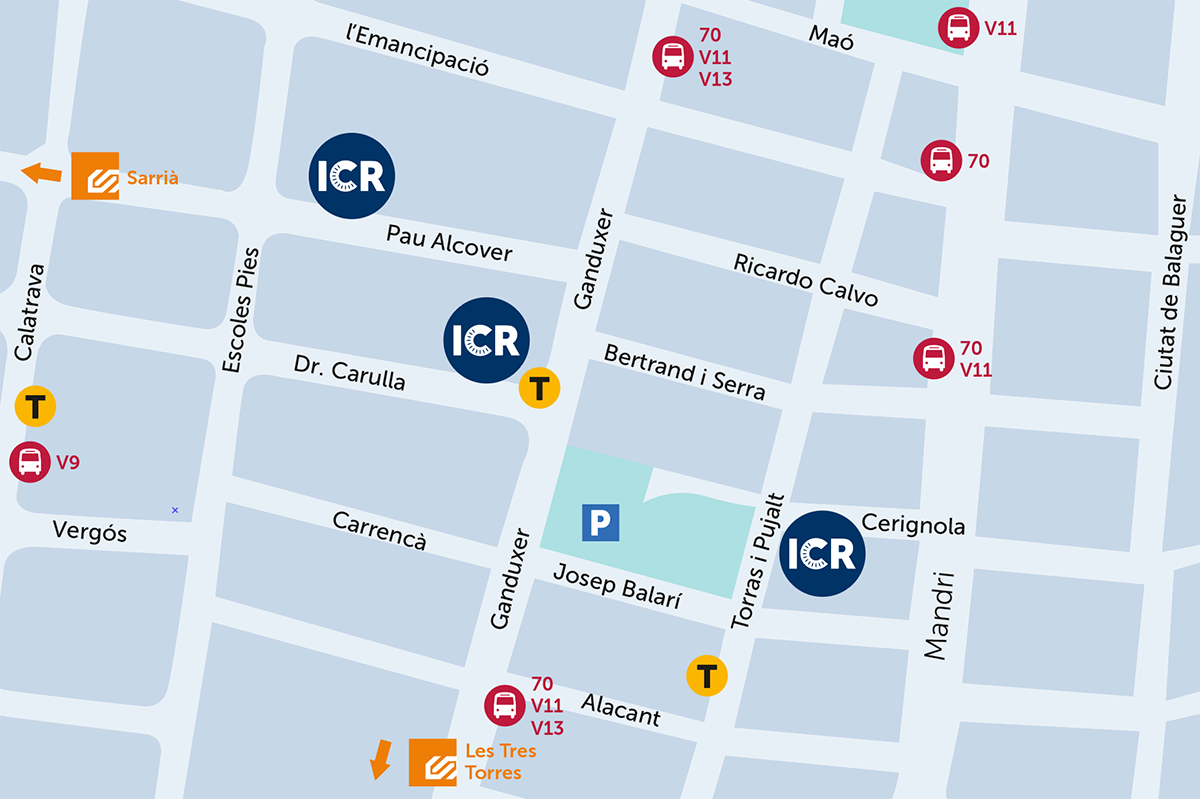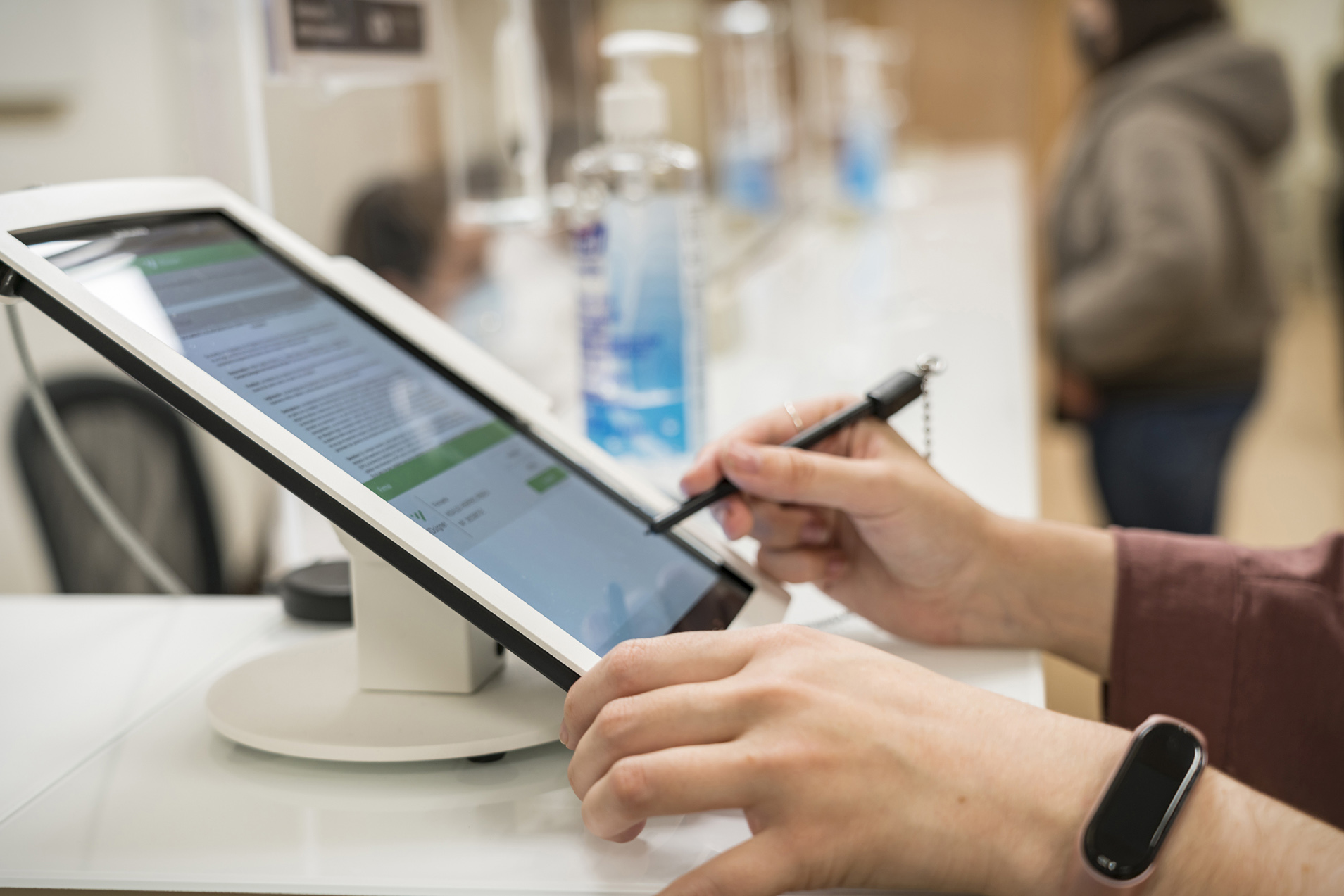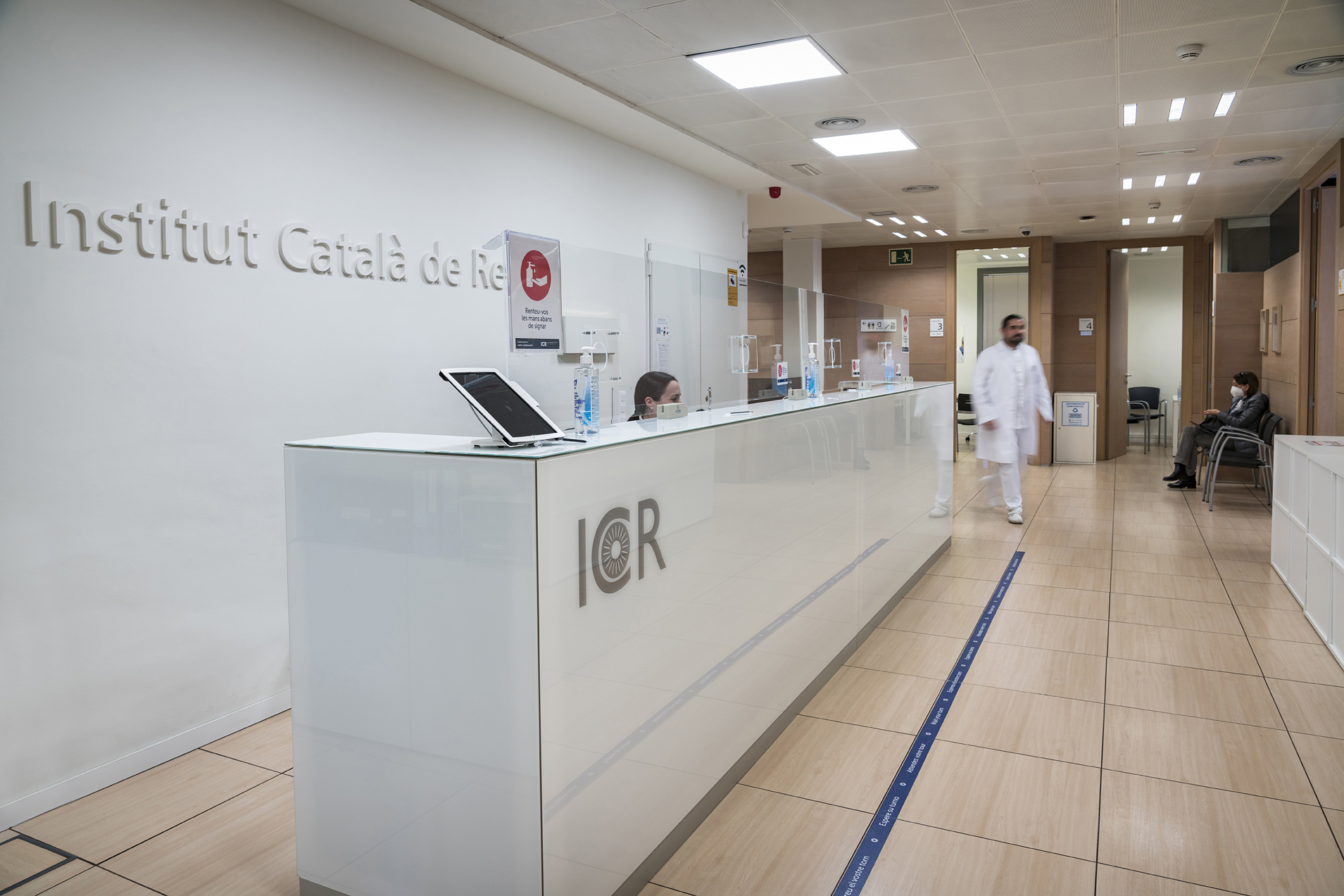

You need to bring identification (Passport or National ID card) and your insurance provider card, if you have one.

If you wear glasses, bring them. If you use contact lenses, you should refrain from using them 24-48 hours prior to your appointment, except if you have come to check them. Do not forget the container for storing them when the eye drops are applied, and to bring your glasses to wear.

If you have previous test results or eye exams, bring them, as they will be very useful for us to update your clinical history.
You can travel to our centre by public transport (bus or train [Ferrocarrils Catalans/FGC]). You can find maps below with the nearest bus stops and FGC stations for reaching each of our centres on public transport. There is also a taxi rank just in front of the medical center and, of course, you can also come by private vehicle.


On arrival at the clinic, you should go to the reception desk, where they will tell you which floor and consultation room you need to go to for your appointment. Once you are on the correct floor a member of our staff will carry out the following:
The optometrist will ask you a series of questions for your clinical history and will carry out a series of eye tests to determine:
Once the optometrist has examined you, you will go to the waiting room before your appointment with the ophthalmologist. If necessary, a member of staff will apply some drops to dilate the pupil. In this case, you will have to wait 15-20 minutes for the drops to take effect.
In pediatric ophthalmology, pupillary dilation is usually performed in a follow-up appointment, at the discretion of the doctor.
You will then be called for your appointment with the ophthalmologist, who will carry out a thorough eye exam to obtain a diagnosis. This may include:
A complete examination of the anterior segment:
Ocular Fundus exam:
If necessary, the ophthalmologist will also inform you about the need to carry out additional tests or refer you to another specialist before determining the diagnosis and possible treatment.
Some of the tests that may be carried out at the first visit (depending on the pathology) are as follows:
In addition, if the ophthalmologist decides that it is necessary to carry out treatment or surgery, you will have to go to the Appointments Department, where you will be given the necessary information relating to the cost of the surgery, the day it is scheduled for and, where necessary, the steps to follow prior to surgery.
On leaving the consultation with the ophthalmologist, you should go to the desk on the same floor, in order to:

Why is it necessary to go regularly to the ophthalmologist?
The early diagnosis allows us to successfully control the majority of eye diseases. An annual eye examination can help us to prevent diseases that once developed will be irreversible. One of the best elements in medicine is the prevention and early detection of possible disorders
When should my child have a first eye exam?
All children should have an ophthalmologic exam when they are around 3 years old. This first eye exam can prevent visual loss, which, if detected in adulthood, may be irreversible.
During the visit, will the ophthalmologist dilate my pupils?
Normally, when it is a first visit to the center or when a certain time has elapsed since the last visit, it is customary to dilate the pupils to the patients to be able to deepen the ophthalmological examination. It will be so except in those cases where the doctor determines otherwise. The ophthalmologist will consider in each particular case whether or not it is necessary to dilate the patient’s eyes.
Does eye dilation cause blurriness? How long does the effects last?
Yes, it is common for your vision to be blurry. The effect of the drops can last a few hours or, in certain cases, the effect can last between 24 and 48 hours depending on the type of drops that have been used. These will depend on the ophthalmologist’s criteria. After the visit, children may return to school but teachers should be aware that they may experience blurred vision when reading.
Can I drive after the visit?
These drops may cause blurred vision for a few hours, so you should avoid driving after the visit. If you come to the center with your own vehicle, it is recommended that you do so accompanied by someone who, on departure, can drive instead. After performing some tests, such as the refractive surgery ones, you will not be able to drive in any case.
Do I need an appointment to go to ICR’s emergency room?
No, our emergency service operates 24/7. We have 5 simultaneous consultations to exclusively attend ophthalmological emergencies, which have all the necessary equipment for a correct urgent care.
Do I need to go to the ophthalmologist if I practice sports?
Yes, it is very important. Eye injuries associated with the practice of a sport are very common, especially in contact sports. All people who practice sports should have a previous study of their visual conditions. The ophthalmologist will confirm the absence of eye diseases or, if there is any pathology, determine what sports can be done and how often and intensely.
In case you come from outside Barcelona and with the aim of facilitating your stay during your visit to our center, we have agreements with nearby hotels, which offer special rates to ICR patients.
Hotel Catalonia Mikado (+34 932 11 41 66)
ICR patients staying at the Catalonia Mikado Hotel will have a 10% discount on the price of the room, in addition to special conditions for long stays. They will also have a special price of €10 per person at the buffet breakfast.
Hotel Tres Torres Atiram (+34 934 17 73 00)
ICR patients staying at Tres Torres Atiram Hotel will have a 10% discount on the price of the room.
Hotel Primero Primera (+34 934 175 600)
ICR patients have special rates during their stay at Primero Primera Hotel.
Hotel Silken ( +34 932 53 17 40)
ICR patients have 10% discount in the Hotel Silken. And also a 12% discount in the bar.
Our patients may also choose to stay in one of the city’s appartments. All the apartments are perfectly fitted and furnished and they are a good choice if the patient is accompanied by friends or family. ICR patients will also enjoy a discount on the price.
Contact us or request an appointment with our medical team.